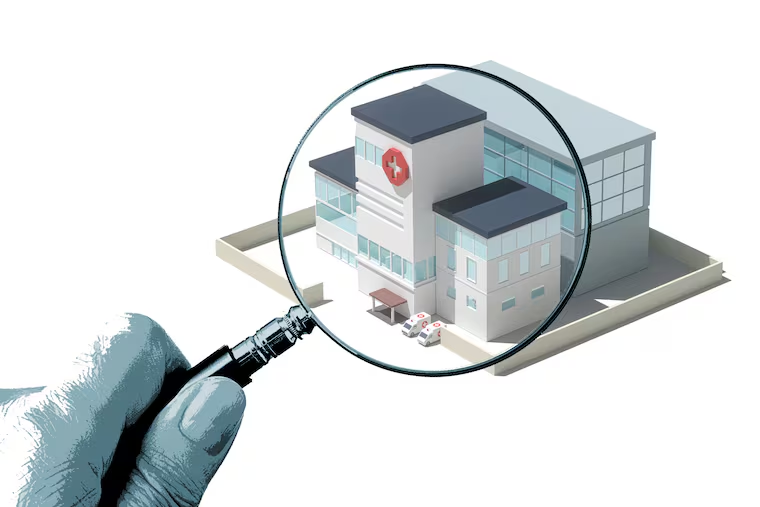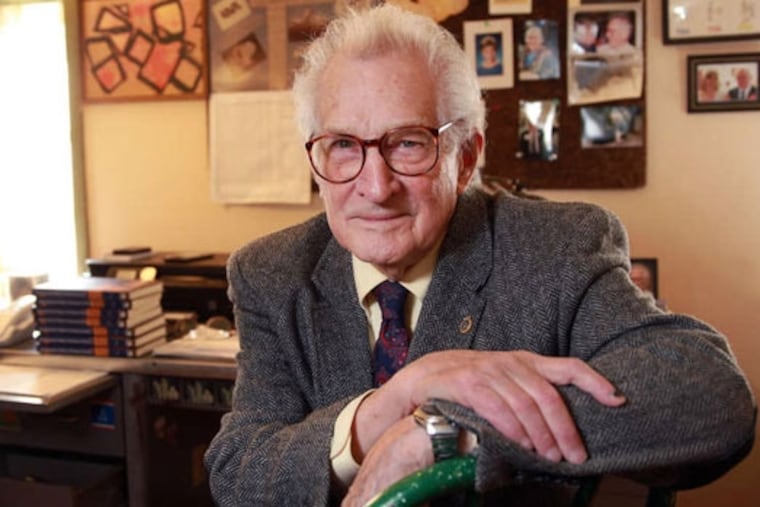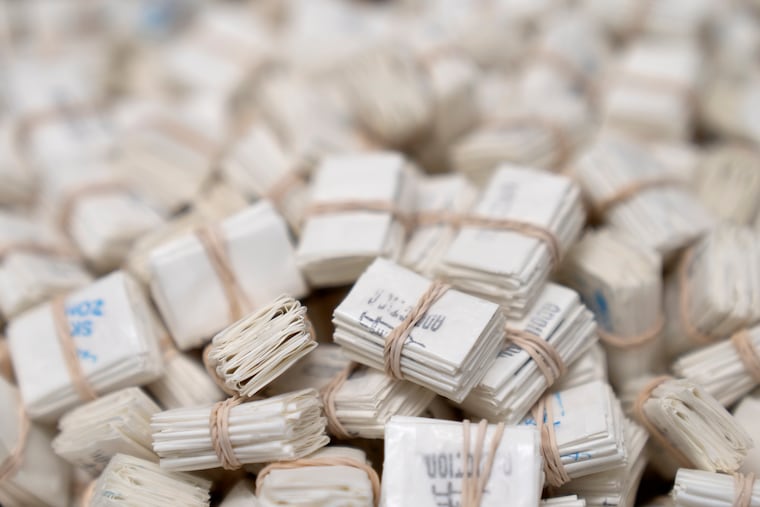Skip to contentPaula Span, KFF Health News
Joanna Fong-Isariyawongse, The Conversation
Barry J. Jacobs and Julia L. Mayer, For The Inquirer
Joanna Fong-Isariyawongse, The Conversation
Joanna Fong-Isariyawongse, The Conversation
Barry J. Jacobs and Julia L. Mayer, For The Inquirer
John Lin and Jalpa Doshi, For The Inquirer
BriarRose Edwins and Hayley Goldner, For The Inquirer
Layla Bouzoubaa, The Conversation
Marcia Dunn, Associated Press
Adela Suliman and Kasha Patel, Washington Post
Marcia Dunn, Associated Press
Adela Suliman and Kasha Patel, Washington Post
Noah Robertson, Tara Copp, and Ellen Nakashima, Washington Post
David Ovalle and Cate Cadell, Washington Post
Geoff Mulvihill, Associated Press
Noah Robertson, Tara Copp, and Ellen Nakashima, Washington Post
David Ovalle and Cate Cadell, Washington Post
Geoff Mulvihill, Associated Press
{"ENV":"VU1ZTltUb01rY2dPXDF4A3xjcAZjInRNfGNSCg==","CONTENT_BASE_PROD":"f11SBF0MfwRVBFUEXRxgA39jVgZ0DGAEf2NWQHcMc1x8c3hAdxx3WHxgfAdgHGQFfGNdXnQcdARoXXBAdxxkTXxzVkBgHGdffHB7XnRUf1h/cGAHYAxWBXxaaE13VGBPa2NVW3RUf1k=","ARC_ACCESS_TOKEN_PROD":"Um9BRmAxYwZVYGBOWDFsA3xzUk90HHNefGNkBXQyZ1x8BXxPYwxjX3xzYE92InRPf2B8BncycEJ8TXhNdBx8T3xzWV90In9dfAVkT2Acd118c3BOYyFjX3xNeE1gHHgFf2BrW3cydE18Y3dbdjJzXXxad1t0HHdfa11kQHYyZAV8c1lbdxx4TXxjXVtjDHAHa2N8T2MydAB8c3AEdiJwBXxgYE92MWwFa1pnW3cxYABrYHtbd1RsBmhaZE9jDHNea1pjWnYyeEJ8Y11bYAtgBg==","GRAPHQL_KEY":"fnB7XV0cZE1rf1VbdwxaBmhjd150DGBMfnN4TWAMYE9oTXBPdAt8BmtdcE10VGwFfFpoBXcLe1x8Y39adCFjWXxjYAV3HGxCfmNwAnQxb1x/XWROYwxgQn9NZE1gDFYEfE1zWw==","GATEWAY_URL":"UnNVX2McXgZQc11cdgxjX39jcEBjDHdZf3NgB2MidE1/c3xPdwtsBn9weE93HH9efHBoB3Yic15/c39bdiJ0BXxwd1tjIngEaF17XmMLYAZoY3dbdDcICA==","GATEWAY_SLS_URL":"a2BSBVoiY0BUcF5OWDJaBX5jcEB3MlJNfmNgA3QyZE18Y3RAdyJ3WWtjdAJ0MnAGaE1gBXchcE1oXXBOYzJsBX9dZAdjMl5Pf2B7XGMMXVxoYGgFYwtkCA==","FEEDS_URL":"UnNSA1suZ1hoXVlfXTJSA39gf153HGBCfHN4QHYyc1l8cHwHYyJwAXxzfAd2Mndcf018B3Qic1h/cHRPdwtjXmhaY1t3HHwEf1p4QGMLf1x/c2RNdjFsQmtjUk5jIlFefF1oTmMLcAFrYH9fYzFzX3xwaAo=","RESIZER_KEY":"UARBA1scdwV/c3QCWjJaBGtdfE90InRCa3N8A3chYAdrXWhPdxxsTX9NcEB0DHxCfmN/XHQhb1h/Y2daYAt4BnxjcE13HHdYa3N8TnQxZ1x+Y3gFYDJnXXxNUgZjDF1ZfF13XQ==","GOOGLEANALYTICS_ID":"aF18BGBVZARUcF4HYwxgA39jUk93IndYfF18T2MMdEx/c2AGdyJ3WX9zWgR2MngA","TWITTER_API_TOKEN":"aGAETnY+bE1oYGsCdy5gA3wFeE5jIn9Yf110T2MhfEx8c2BAYwx4Qn9jeE53MWBNfFpkTXQMbAdrXWgHdiJ7WGtjZEB3HFFdfE1/W2MhYE18Y3AHdxx4AWhjdAd0InQEa110BmMxbEJrYGRNdwtsBGhdc1tjC39ffHB3W3dUZAFoYGhOYzJ0AHxja1p0VHBPa11VXmAccAF8cGtcYwtzXmtzVV13InNeaE1zXndUb1x/cHtbdiF7XWtjdAN3MWRPa1p3XWMxZ11oXX9bdFRwBHxjWVpgVGAHf3B0QGBUZ19oBXdbdiFzXGtgY193MWwHfHB/W2MyUk9rY1lfdwtsTWtzd193DHQFfmN7XXchbABrcHgCYwtkTWhNaE93IWQAfmNjXHQyWVxrc3tdYDFkB2hda113C2QFaE10Cg==","GOOGLE_CLIENT_EMAIL":"f2BWB1syb198XXdEWD5WA39geEBjImAHf3N8T3Qyd15/cHgHdyJ0BXxjVk9gDGNZfF1WB2MMcE9oXWBPdzF/XH9zUgZ0DHwGfHB/XnQif1l/BWBNYwxRX3xdWV52MmxMfF1nW3QLb1xoXXNaYAtzXnxdXV50MWNef2B3XmMLb15rWmNbdjJsBWtjUgJ3HHgHaGB/XWMLcAd/WnRNdyF4AGtwfAo=","GOOGLE_PRIVATE_KEY":"UAVdTVoudwdSBH8EYAtGA39deAdjMmRPf2B4QGMyYAB8Y2hNdiJ8Bn9jaE1gDHgGf3B4TmMif158Y3hPdzJnWHxadE52MmQFf2NgTmAyf118TWQHYwxgT3xdZ1p3MnBCfHNZW3cxY1h8c3dadDJ3XX9wfE5gDH9ca2NaT2AycE9rY3tddBxgBHxwY1tjIWBNfHB4QHYyd1l8cGROdyFsAHxNYE52MnQGa3N8T2ALb198c2BAYzFvXWhNY1x3IWRNa3B/XXQMfExrWmtedzF4BGhNVVp3MXtea11kTnchcAF8YGddYzFkTGtjVVpgMWNefGNjXXQLZAVrYGdadDFnWGtwd1x0C3tfa2NVX3cLf11oXVVfYDFwAGtjaEBgVGdZaE1VX3dUZ19rc2tdYyFnWGtdd110IXwFfnNZXXRUYAR+Y3NfdzFwBn5jXV1gHF1Ya2B0AmMxe1h+YGtfYFR7Xn5jYAN3HHwFfF1gBnccf1l/YHRPdAx8THxgfE9jMWxMa118QGMMe1l8XVoGYBx/WGtgYE53MnRMa110B2MydEJrXWBPdzFgBXxNaE93IWxNfAVoQGMMd15rXWRAdDFsQmtadEB3ImBMa1p3W3Qid1h8Wn9cdDJ0BWtjdE12Mn9Za2B8T2MxeEJ8TVZAdyFgQmtjY1tjC2QGa2BrW3ciYAF8Y3NadjFnXmtde1pgVHgEaAVoQGAxeAR8c3dddwtgBGhNd1pgC3hPa3B/W3cxYAZ8XXdcYzFgBGtae112MXAAaE17XnYycARoTWdeYDF8B2hdZ11jIWdea3B3X2ALcAVrc3tbdDFgTGhNY190MXgFa2NjXHcxf19rXWteYBxeQmtzZ190MnQAaF13XXchc1h+c2ADdAtkTWtwfAJ0MXgBfnNnXGAcXgRoY1ladyFnXWtja1x3C3xPfmB4TnQMZ118c3xOdAxkTHxzfE9gDGNZf2NSQGAydEJ8XXQEYBx0BHwFaEB0MnQGfGN8T3cMeAF8YHxAdDJ3XnxafE1gC2wFfHNoTXYyfE98Y1ZPdxx7XXxzaE50HHNffFpkB3QMcAZrXVladiJ4BGtjUk9jInQBfFpkT2AMfE18WmdbdAx3WWtdY113IWxCa2NwQGMxZAdrWmtcdwx3X3xNXVx3C3gAaAVjWmBUZAFoTVVddDFkBHxgf1t0MWBNa11wT2AxYE9oBXtfdBx/WGtwf1p0C2wAa2N3XXdUZAd8YGtcdCF4Qmtzc11jIWQGa2BnW3Yxb19rY11adAtwBmhNd1pgVHNda2B4AnQidE1rY1VfdiFjXmhga11gMXgEaF1/XXYhf15oBX9bdjJeT2hdXV53IWQBa2BjXnQyUgZoTVlcYzF8TGtwe112MXNdaF13XndUc158cGhOdDJ8T3xdYAR3MnRCfF18TXYye1l8TWhAdDJ4Qn9NcE9gHHgGfE10T2AyeAB8XWNadjJgT3xgYE10MnddfHNaQHdUYAV8c3QHdAx8AWtdVk5jDHAFa11WQHcce1h8TVpAdjJ8AXxze1t3C2wBa11VXWAydABoBWtaYAx/WXxgd1t2IWBMa3NjW3dUYAFrY3tcdjFgQnxgaEBjC2AGfHNWTWBUbE1rXVZAdFRgBGtaY1pjC2Nca3NjXncxb1loTWdaYzFkAXxwZE9jMWABfGNjWncxbARrXV1bYzFgB2taZ152IWNea117X2MheAZrXX9cdzJzWGgFd1xjMWAHaGB3WncLe11rWnwDYAtzX2twf152MWdfaAV0AncLY1hrWn9fYwt8AWtzYANgC39dfmNrX3cxY15+Y2tcdiF4AGtwZ192MXgAaE1rXGAcXgBrWndfdDJkBXxjdAd0DHQBf01ST3Qyc1x8WmdadBxnX3xdd1p0MmRPfAV4QHYic1l8BWBNdyFvWWtdcE1gVGwGa11wT2MifABrY3tbdjJ0B3xNcEB0DHAGa113W3cycAF8c2hAdCJkBmtga11jMnBNfHB3W3Qhb198Y1pPdyFjWWtgf1p0MnNca2NzWmMMdAB8XXNaYAtkTGtjXVpjIW9eaAVrW3Qif1x8c2taYzJ7XWtjd1x0IXhMa11gTXQLeEJoTWtadyFsTWtwa11jMXtffE1dXmMLe15rXXtbdAxzWWtaY19jIXgHa3NnWndUZABoXXtbdjF4TGtge1t3MXNdaAV7XXQhc1xrYGtddAt4BWhaeAJ3MXgEa1p3XHQcXVloXWtddwtvXWhjc1xjIl4Fa3NrXnYxe19oBXRPdFR8BGhjZ113HF5PaGNaAnQxcEJrXVlfdyFnXGhjUgRgMnQAfHB8T3QyVgF8TVJOdxx8AXxzWk90MnddfF1aB2AcfAB8Y2RPYBx/WHxzZEB2Mn9dfF1STncycEx8YHdadxx3XnxzUk1jIn9YfHB0T2Mxb19rY11aYFRjXHxdWVt3MWNdfF1wQHRUb15rY3NadCJ0B3xgd1pgC29ea2BrW3YidAV8c2RPdDFsT2tdd11gVG9Ya11SQGBUZ1lrc1JAdwtvWGtaZ110InQGfFp7W3cLYAR8XWtddCFvXGgFf1x3MXgFa11/XHQhYABrWn9bYyFsBWgFf110VGNZaE1WQHchZE1rY39adAtkTWhjWV50VHtca117XWMxfAZrYGNaYFRzWGtwd1x3HHNdaF1nXGBUeExoYGtddAt8Bmhad193VHxNaAVjXncxZ1xoTVlfYFR/X2tzZAN2IWRPfnNgA2MyXgFoWnwCdAtgAGtwYAJjMWdZfHN4TXcibEJ8c2gFYDJ0B3xzZE5gDHBNfGNgT3ccY19/TXhOdwxwB3wFeEBjIngAfE1wTXYye1h/cHRNYDJwBWtdWk93HHNYa2N4TmALbAFrXWBNYDFsAHxzZE92IngFf3N3XHdUY19rY1Vbd1RgT2tjf1p2IWxCa117WncccAF8c1ZAYyFgBmtjeE93MnQAa3B7W3QLeAdrWmhPdzJ0AXxzd1t0IW9Ya2NVXXQxe15oTVZNdjJ4BGhNf1p3MWAFa2NgQGMheAZ8cHRAYDFkTWhge113IWRCa11ZXnchYAVrXVVedyF7XWhae1t0C3hNa1p3X3cLfAFoYHtcYFR8AWtzXVtgVGQFaE1rXXYhZEx+cHtcYwxeT2tzd1xgMXgHa1p/XGALZ1lrcH9fdjF7XmhaZAJ2IW9daF17XncyXgB+Y3NcdwtkBGhjc1t0DFIGaAVnXmAMY118TWhNdxxkTXxzfAZ0Mn9ffHNoQGMyYAB8BXQHYwxsAHxzZE9gDHdefFp0TncMeAd8XVoHdDJ0T3xaZE93IndYfGNkQHQidAV8WnhPdiFvXWtaa1p3C2NefHBkTmBUb1h8TVJAdzFgAHxNVVp2IWRNa114T2MxZEJ8Y2hPdAx7XWhNeEB2IW9cfE13XGAcd11oTWtcdiJ3XGtzc113MnQGa3NZW3Qcc118c39bYFRgB2tdfE93MnwEa3BrXHQxZE9oTVJAYFR4TXwFf110HHdefHB3WndUZ1xrc3ddYDFnX2tjZ1t2MWwEa2B3X3QhcExoWnhNYyFnXWhja193C2dca3NnXmMLYARoYGtcYDFjXGgFe1x0VHxCa114AnYxY15rYGQCdzF4BX5jVV1jMXAEa3NkT3Qxf15rcHgCdiJZXGgFe1x3MXBPaE1VXHcLcEx+Y1ZAdDJwBHxgYE10Im9cfHNSBXQydE98TXhPdxx4T3xge1pgDHhPfHB8QHcyZ1x8Y39adyJ8T39NfE10IWNYfHNgTmAcdAZrY2tbdAx8B3xjdEBgDHddfHNoTXchYE98c1YGdyFjXmtjeEBgDHQGa2NjWmMxYE98WmhOdwx/WGtja1p3C2AGa117WncMYAVrXXdaYFR4TWhNc1tgDHAHa2NVW2MxZ1l8c2NbYyFjXmtgfEB3VGQBa3NrXXcxZEx8XXddYDFsT2tjWVt2MWRNa2B3XHYxZAVrXWdbd1RjX2hNWkB3VHAAaGNZWmALZEJrc3tedCFwQnxdXVpgMXBCaE13WnRUZAVoY3tfdFRsBGhjY190MWNea3NaAnchfAdrc1lbdzFkBWtzc113HF4AaF17XncxeEJrcGtddyJdXGhNe153IXABfmNzX2MxbExoY1VfdFRwAHxjUk53HHwBfFp8BmMydAB8XVpAYDJsBnxNUkB0DHNdf3NSQHYyeAB8YGBOdDJ3XWtdZEB2ImAFfHNjW3Qce1hrY3hAdDJ3WXxzeE52MWNcfHNST2AMfAd8c39adDJ3WXxNa1p3MWAHa11wQHYif15rXV1adyJwQnxgZE93MWNefHNaQGAyc198Y2BPYDFnWHxwZE90C2BMaAV7W3cyc1l8XXtcYyFvXGtzXV13VGBPfHNzXHcycABrc11adiFgB2tgdE1gMXgFa3N7WncLfARrYGtfdjFwTWtdc1t3VHgGfHNVXmBUYABrYGtbYwtkAWhge11jMWxMa3N7W3cxfARrcGtfdFR7WWhjaE9jMXAHa11SA3YxYABrc1VfdiF/WWtdZ192MX9ca3N3XHcLeAFoXXtfYzJ0BmhNVV1gC3gBaGBoAnQLZAFrc3NadjFzXWhdd15gDHAFfAVgTWMydAd/BWBNdxx8BXxdUgZ0DHQHf118B3YyY1l8c2NaYwx8THxjfEBjC2NZfHBoTXchbAB8YH9adiFvWHxaaEB0HHdfa2N0QGAxYExrY3RPdyFjX2tjc1pjDGAGfGBjW2MMdEJ8YHddYAtgTXxjUgd2Mndca2BnWnQydEJ8YHtbdBxwBmtdd1t3MWRMa2B/XHcxbAdrcHdcdyFkB3xgd113DHNca11WQGMhY1xrc1pAYAt7XWtzf1pgMWAGa3N3WmAMfABoTXNadyF7X2gFZ152MWQEa1p7XHYid19rY1lddyFsAGtdWVt3IXBCaGN/W3Qxc15rcHtfd1R7XGtwe193VH9fa3NVW3QLcAdrY1YDdCJSAX5wa1x3MW9eaFpnX3YxZE1+Y3gCdDF/XGhgY1tjIlJCa3NgAmMhf11+Y1YCYDFwAGhgY153IX9ZfmBoT3YyfE98TVZNdzJwB3xdcE52Mn9ffF10QGAMeAF8Y3xAdCJ7WXxNfE10MnQHfHNoTndUb1h8XWBAdDJ0AXxNcE9gMnAGa1pjWmAcfAR8WmROdiFjWHxga1p2InddfGBgB2AycAZrYGROdiFgAGtja1p2IXhPa1p7WmBUbE18Y3RAdwxwTHxjUk9gC2QFa11ZXGMxY19rXVladiFvWWtgdE13HHQBa2NzWmMxbE18Y2tadCF7XHxdZEBgMWdca2N/XnQLZ1lrc2tddiF4BnxNd1x3VHxNa2NjW2AxY1lrYGNddyF/WGtdXVx3MXAAaGB7XHQLbAB8c3NcdjF8AWtjVVxjIXwHaGN3XmMiUgB+Y3NeYDFnWGhjWV13MXwHaGB/W2MxZAVrc2NcdCJeBH5gZ113C3ABfHNgAmMLf19+Y3NcdiF8B35zVgJjC3gBaGBnX2BUcAZ8TXhAdjJ/Xn9jVgR0HHNffGB0TncifAF8XWQHYzJnWHxNfE53DFZNfHB4T3QMc198BXxOYwxgBnxzVVpjDHdZfAV/W3cce1xrYGAHYwx0TGtje1t3IWwHa11kT2AcdAFoBXhAdCJ0TXxdYEB0DHBNfFp/W2AceAdrYGBPYyFvX2tge113InQBa11oTmAxY19rXWtbYzFsTWtdfEB0MnAEf2NSQGMhY19rY1VadyF8T2hNZ1xgMnNYfGN0T3QhZEJoBWNcdiF7XWtwd1p3IWQAaE1gTXYhbE9oY1ladCFnXHxgY1xgMWdZa3NnXHQLZ15rY3NbdCJwBmhNWV13C2NYa3N3XHcxf15rc2BAYyF4BGhgf11gVH9ZaF17XmMxf15rWndfYDF4AWhNZ1x0C3BMa3BrXGMxbAdoTVVeYyF4TWgFd113HF4Aa3NnW3ccUkJ+c3gCYAx0THxjdE90IngAf1pkTWAcf118WnxOdAx8THxwYEBjMm9ZfFpgTmMyfAF/WmQGdzJ/XH9jc1t3HGdffHNkTmAMcAd8TVJPdBxzXH9jcEB3MnQHfGB4QHQie198YGhPdjJkBnxjYE9jInhNfAVgTncieE18XXAK","BLUECONIC_ENDPOINT":"UGBJQFsLZ0ZScFVCYBxaTWtjcE10MWwFfHNnXXQxbE1rY3ROdCJsTX9wZAJ0MlJPfGNkA2MybE1rWmhPdDJnWX9aZAd0DGdZa11jWnQLfE9/YGtcYwtnWWhdZE9jMWwI","BLUECONIC_STORE_ID":"a01ZA1sxXU9VXWMEYzJaQn9dZAR0MXwEfnNzXHQcdAV8c2dfdyFkTXxNZ193MlFYa2N7XXQLcE98c3AEdCJ4Qn9jdAV0MnAGfHN8AnQMdEx/TXhOdAx4Bn9NcAJ0HF5MfnNrX3QMXVl8WmRAdAxsCA==","BLUECONIC_KEY":"a1pVR1ouewRTYHdYWzJaTX9NcAN0MXBNa11kBnQhYEJ8TXNb","BLUECONIC_SECRET":"fH97A10hAAVSf3cBYD5ZXn5daAd0DHxPaGNwTXQhfEJ8c3AGdyFwTGhNd150HGNZf2N3XXQMZEx+c3RAdDJjWGtzfAV0InhCfFpnX2Mxf1l+Y2tddAx7WGhNfAJ3IXhNfwVrXnQybAg=","AMP_AUTH_BASE_URL":"UlpVQncIbExrXWNbYAh4A3xjXVt3HHAHf2N0QHYiZ1l8Y1IGdBxgTXxwZ1p0DHQAfF1kBnYxfEx8cGAHdCJgT2hdYE92In9df3BjWnYic19rY1IHYyFgB2haYE10VH9YfF1/WndUbAZrXXdadAtgAGhgdE1gDGBCa1prX2MLe15oTX9bYAEICA==","AUTH0_DOMAIN":"VH9jXHcxc09VYEIHdxxaTX9ddE90ImxNaF1gA3QyZEJrXXAHdyFzXH9zc1p0IntZfGNgTXQxeEJ/XXACdDJ4CA==","AUTH0_CLIENTID":"UlprBV0uZEJrcGRAXCJeA3xgdE9gHGRPfF1wT3QcbAd8cHQGYDF8T3xdWgZ2InBMf3N0B3YyZ1x8WmdedjJ0BXxzeAVjDGRNf2B4TXcxYE1rXWBAdBx8BWhdUgZgMnAFf2NoQGMnCAg=","PIANO_ID":"UgR8A10xfAR/XVlHXVVwA3xNdE93IlFcfGNkTnQMY1x/Y3wGYDJwB3wFeAo=","MIXED_CONTENT":"f1pJQGBVbwdrb2sGd1VsA39jVkB2MnBMf3BgB3QMcAF8Y3BAdwx3Xn9gfEBjDGQFf3N7WncicEJrXWBAdyJgT3xzWkBjMndff3NZXnRUYAV8cHQGYzJ4QnxafE53MWBMa2NnX3RUb14=","VIAFOURA_SITE_UUID":"awVrAXQyd0xVcFpNdCFWA3xzdAZ0DGdffHNWBncycAB/c1YGdCJjWX9NVgZ2MnwGa2NwTWMyVgR/TXBNdjJkT3xafARgDGdcfFpoTncMf1l8TXQFdzJRXnxNd1p3HHtef11SBXQieAV8BXhNdBx8TA==","GOOGLE_CLIENT_ID":"Ul1jAnQuXgdQTXsBWAxaTWhNZE90MXxNa2NnW3cyUkJ8XWNbdCFsQn9NdANgDGwFfwV4T2MMUgV/Y3QHdyFsQn9zdAR0HGxCaGBoTmAMXVh8WngGdAt7XH9zfARjMnRMfAV7XHQLfAdoY3tdYDFgQn5geARjDHNZf3BrX3cyc1l8cHQFdDFkAHxaZAd2MntZf2B8BnQyYAB/Y3tadzJZXmhdWgV0IlYFfGB/X3QiWV5+Y2ADdCFkBX5zc1t3ImBNaE1jXGMhZE1rc3NadyJeCA==","AUTH0_BASE_URL":"UAR3QV0LDARSWlVAXAxaBX9NdAV0InBNa110TnciXkJ/XXdedCFgQn5jZ110MWRMaFpoB2MxfAVrYGgDdDFvWHxjcAZ0HF1Ya3N7W3RUeE18TXNfdBxkTHxaaAJjMX9Ya1pkBmMMXVh8UAwK","CHARTBEAT_DOMAIN":"U3AATlo+UU1QBHwDXTJSA3xzeEB2InBCf2BoBmMycAd8Y3RPYBxkB2tdaAdjDHNc","G_OPTIMIZE_CONTAINER_ID":"fFpjRV0yZE98BWgDY1RGA39dUk5gMmAHf3BoTWMybE1/XXgGdzJvWXxwaE53NwgI","G_TAG_MANAGER_CONTAINER_ID":"VXN3AWA+e0FUcAFAXVRSA3xdcAR2Mn9cfE1SBWMieE1/c1pNYzJvWHxdeAo=","SF_CLIENT_SECRET":"U3BCAmMIc0B8WVlDdBxaTGtjZ1p3VHAEaE10BHcyZEJoXWAHdAx4BnxjeAJ3MmAEf01kA3QMeExrY2hOdAxWTGtdUkB3ImRPa3NSTnQLbE9rc3NadzJ8TGtdYE53DHRPaE18A3cxYE9+c3QDdFRwQn9NdE90Il4HfmN8T3QcVgR8TXADYwt4TWtzZE50MXhCfnNnWnQicE1rcHRPdDJgTWhddAR3IWRCa110BHcif19/TXAFYAt4TX5mDAo=","G_RECAPCHA_V3_KEY":"UmAIX2MyWUVVc3NcdwtCA3xddE53MnABfHNSTWMMd1l8WmQFdAx0B39NUkB2Mn9ff3NSTmAceAB/WmRAYBx7Xn9jcEB3DGdYfF1nWncLYARrY1pPYyJgAXxNaAd3DGBPfHN0BXYyc118cGRNYyF4T39zc15jMnAAfFp0Cg==","G_RECAPCHA_V2_KEY":"UnAEQnQLBEd/c2tOWzJaT2hjc190DGQEfHN7WnQyXgR8c2gGdDJsQmtjeAR0DHgGfHNoAnQcZEJ+c1IFd1R8Qmtdc1x0HH9Zf2NwB3cxeE1oBWdfdzJWB35jYEB0IWBNf2N8T3QyWVxoXXACYFR8Bn9aeE90InxPfEAMCg==","GROWTHBOOK_CLIENT_KEY":"UGNzXHYxVgV+YHtEdBxaBHxNY110DFIEaE1kQHciZAZ8Y3dfdFR4BX9jZAd3IlIFfmNVXHcxYAVrc2NbYzF8CA==","SOPHI_HOSTNAME":"VVl3XVoLZ0J/b2NdYwhwA3xjVk93InRNf2B8B2MicAZ/cGhPYAxzXmtjZEB3DHRNa11gT2Myd15rY3QK","HTL_SCRIPT":"f39dRVscfwRTYElaWxxsA39zYE9gDGQFfHB4BHQic1h8YGBPdCJwBH9zeAdjMmRNfE1aBmMic15/c3dadDJjXWtgaE93MmAHaF1nXmMhb1lrYGRPdyJWBXxdYAZ0InwAa2BrW3QLfAd/TXtadCFgBXxNa190C2Nea1pgTXYif1x8cHwCdxxsBmtzXV1gC2wG","LIVEBLOG_WS_SERVER":"UHBFBVoxAFhSYGNZdAxaQn9dc1t0MmQEa11gBHQicEJoXXNedDJZXHxjd1p0MXtYfE13XXQyXk1oY3BAdDF/WXxzY1x0DFYEf11gAnQMe1l/WmgEYwtsCA==","SOPHI_SCRIPT":"UgUAX10iZwZrWXwEXDJaQnxNc1p3IWAFa3NkQHQceARoY2NbdCF8T2hNYAJ0C2xCa2NgT3ciYEJoXXQEdCJdXGtgaEBjC2xMf11nW2MLYAVoYGdaYzJvWHxzUgJjDF5Pf3BrXWMMb1hoWnQFYzFgT2hNf1tgDF1Yf114BWMyb1h/cGAHdzJ3Xn9dfEBjMWddfHBkQHQLZE98cHxAYyFkAH5wY15gHFlZa1AMCg==","STATS_WIDGET_CLIENT_ID":"fFpnB1gLAUJQc1JPdFVwA39zfEBgMnQGfHNkB3YiZ1x8c2gGdiJgBH9zcEB3Mmddf2NoQGAcc1x8YHQHdAxwQn9we150MnQB","_id":"9febe1ad44dc25fd41973594c7455ccb7733d09fd7aa13bc0d72f9e39887c8f3"}
























